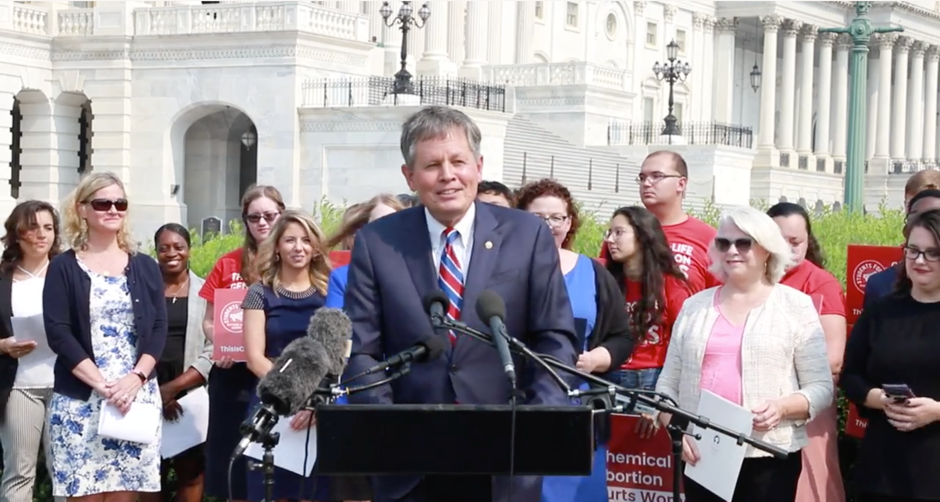U.S. SENATE — U.S. Senator Steve Daines today introduced the “Protecting Life on College Campus Act” to prohibit federal funds from going to any college or university with a campus health clinic that provides abortions or abortion drugs.
“For too long the abortion industry has been taking advantage of vulnerable women and now, blue states like California are beginning to require campus clinics to provide chemical abortions on demand,” Daines stated. “These do-it-yourself abortions put young women in dangerous situations that they are oftentimes forced to deal with alone in their dorm room. This not only ends the life of an unborn child, it endangers the mother’s life as well. We cannot allow campus health centers to turn into abortion clinics.”
Senator Daines joined Congressman Chip Roy (TX-21), Congresswoman Mary Miller (IL-15) and other pro-life advocates at a press conference this morning to give remarks and announce the introduction of the bill.

To watch Daines’ remarks, click HERE.
For bill text, click HERE.
Senators Marsha Blackburn (Tenn.), Bill Hagerty (Tenn.), Mike Rounds (N.D.), Marco Rubio (Fla.), Cindy Hyde-Smith (Miss.), Roger Wicker (Miss.), Joni Ernst (Iowa), James Inhofe (Okla.), James Lankford (Okla.), James Risch (Idaho), Ted Cruz (Texas), Tom Cotton (Ark.), Mike Braun (Ind.) and Josh Hawley (Mo.) joined as cosponsors.
Congressman Chip Roy (TX-21) and Congresswoman Mary Miller (IL-15) introduced companion legislation in the United States House of Representatives.
Several groups have shared their support for this legislation including Students for Life Action, March for Life Action, Family Research Council Action, Heritage Action, Susan B. Anthony List, Concerned Women for America LAC, National Right to Life Committee, National Pro-Life Alliance, Family Policy Alliance and Texas Right to Life.
Background:
In 2019, California passed legislation requiring campus health clinics at public colleges and universities to provide chemical abortion pills on demand to students starting in 2023. Other states are beginning to follow.
The use of chemical abortions has skyrocketed in the past 20 years, increasing from just 5% in 2001 to 39% of all abortions in 2017. 7% of women experience complications requiring surgery.
The chemical abortion process requires taking two pills. The first, Mifepristone/Mifeprex blocks the hormone progesterone destabilizing the uterine wall and starving the baby. The second, Misoprostol, is taken a few days later at home and causes contractions, expelling the baby and leaving the mother to deliver her own aborted child.
###
Contact: Katherine McKeogh, Katie Schoettler
